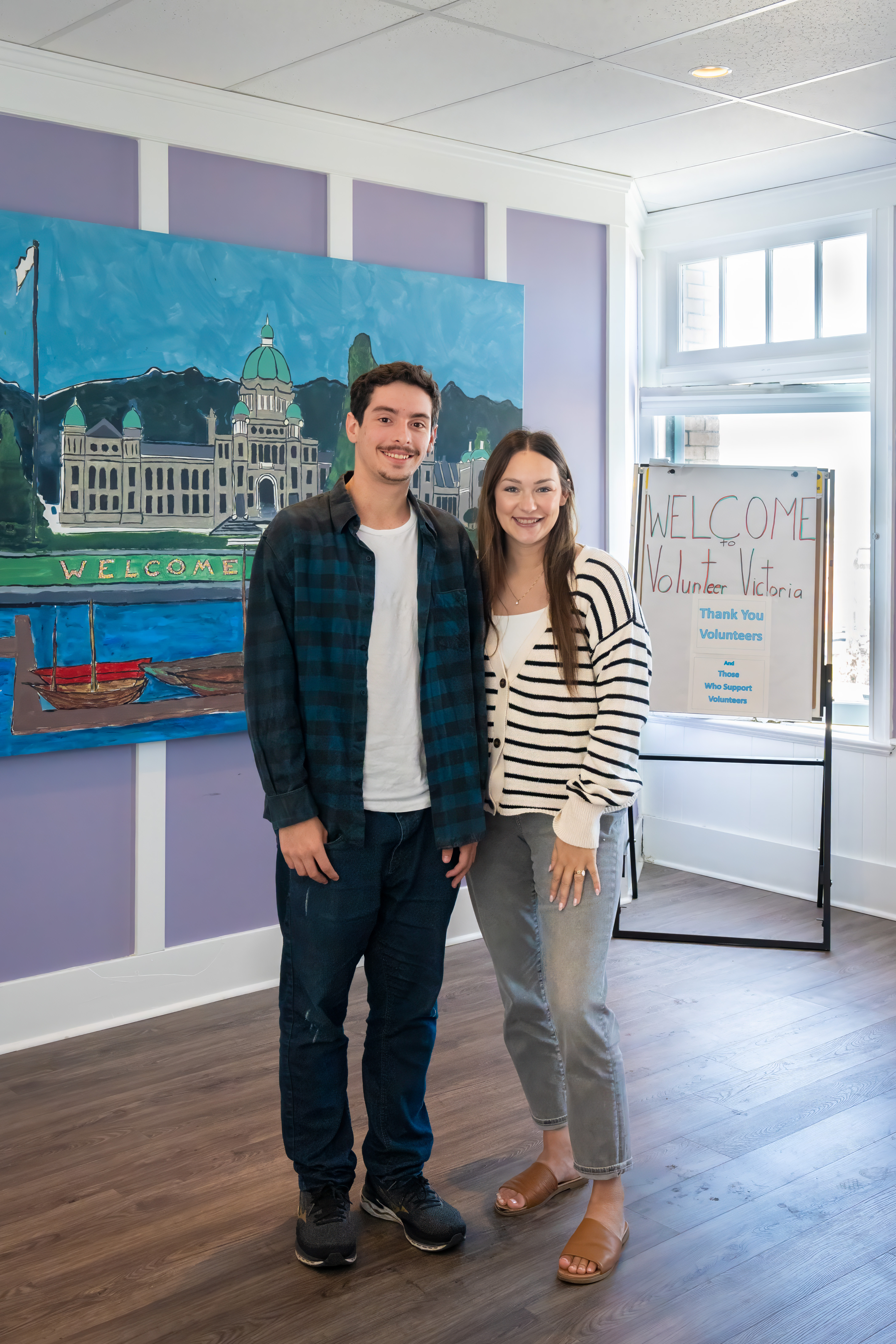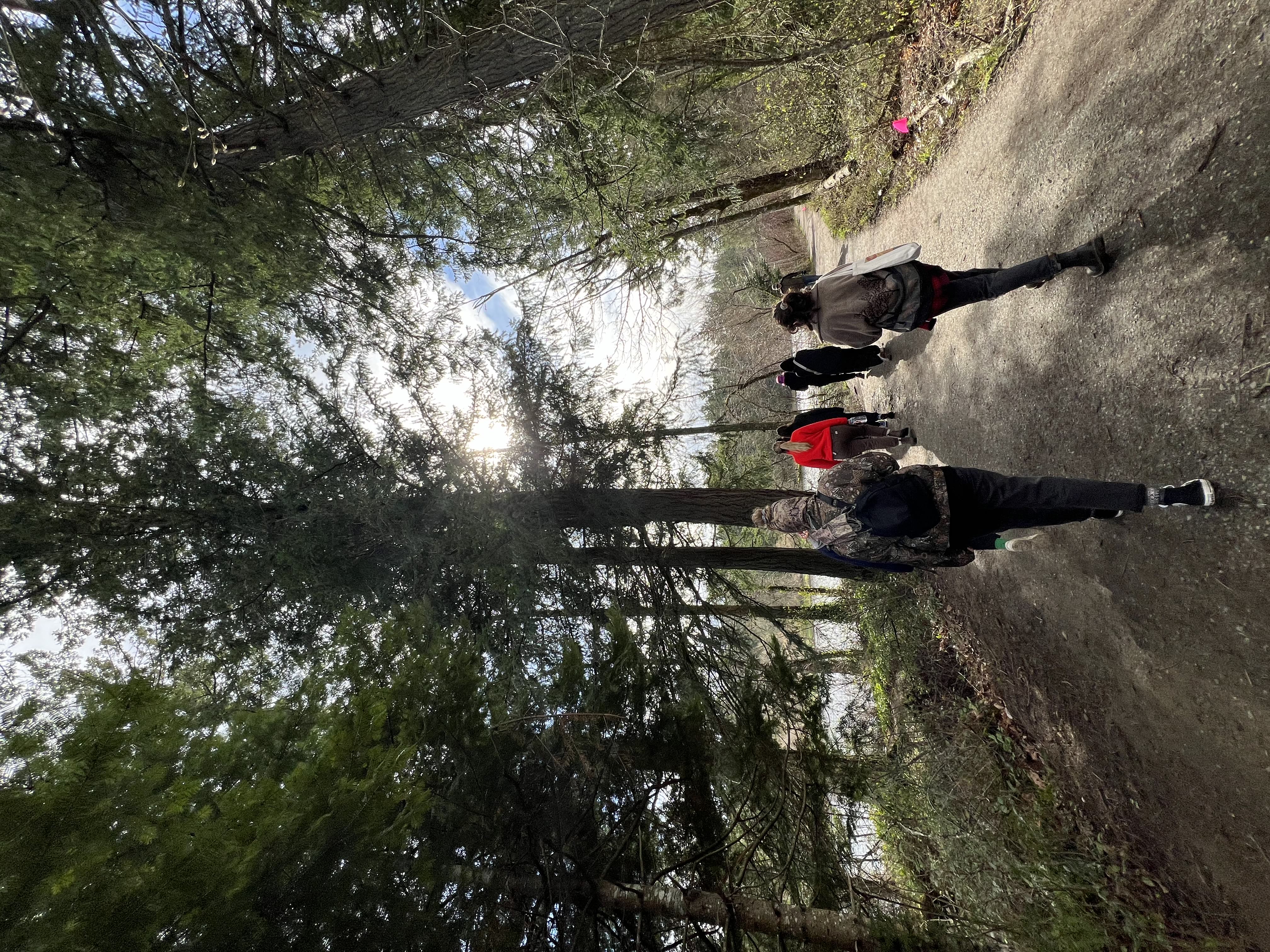A project supported by an Island Health grant has helped Victoria-area youth deal with anxiety about climate change and inspired them to learn about local efforts that are making a difference.
The initiative, called Eco-Anxious Stories and Next Steps, received $50,000 in funding from Island Health’s Resilience and Safety Grant program. That program offers grants for projects that focus on improving mental well-being, building youth resilience and mitigating harms associated with the unregulated drug supply.
Part of the Eco-Anxious Stories project explored storytelling as a way for young people to better understand their eco-anxiety and share their climate-related concerns with each other to foster a sense of connection and hope. “In clinical terms, the American Psychiatric Association defines [eco-anxiety] as a chronic fear of environmental doom,” says Rachel Malena-Chan, one of the project partners and creator of the Eco-Anxious Stories platform. “But culturally, I think the concept is used a lot more broadly, even like a kind of gateway into this more nuanced conversation about climate emotions, eco-emotions.”
“We didn’t want to focus on the negatives [of climate change],” says Julia Harrison, a mental health program coordinator for Volunteer Victoria, another key project partner. “We wanted to say okay, we’ve recognized that and we’ve done the research. Now who can we bring in to teach these youth how to harness the positive emotions surrounding it, and what can we use to tell their stories in a more positive way?”

Ricardo Caetano, a student participant in the Eco-Anxious Stories and Next Steps project and Julia Harrison with Volunteer Victoria
The initial idea for the project came from Kirsten Mah, a healthy communities planner with the Capital Regional District. During meetings with different groups – from climate action planners to service providers who support children and youth – she noticed that climate anxiety was a growing concern. “It came from the community, and I just consolidated it into kind of a vision and brought it together with Rachel and Julia to make it come alive.”
The first stage of the project saw the trio visit two Victoria high schools to run their storytelling workshops for nearly 100 students (Malena-Chan had recently moved to Saskatoon and so attended the sessions virtually). They also hosted two workshops at the Volunteer Victoria space for youth to attend. Ages ranged, but the participants were typically between 16 and 18 years old.
Aided by writing exercises and dialogue, youth were encouraged to share their stories and emotions about climate change. Some described feeling overwhelmed, frustrated, resentful and angry. Yet some also highlighted a sense of hope in the midst of the climate crisis, brought on by community connections, growing global awareness and an urgent sense of the need for change.
“I think the climate conversation has been very much trapped in that space of technology and policy and things that don’t feel very relatable to an everyday young person,” says Malena-Chan. “But when we flip it to be about our emotions and our values, our sense of identity and our place in the world, and our future, our personal experiences – essentially what’s most meaningful to us as human beings – that’s when people start to light up.”
Phase two involved students participating in tours and presentations to find out about local eco-oriented initiatives. These included:
- a guided walk at Elk / Beaver Lake that explored Indigenous perspectives;
- a tour of the Sooke Lake Reservoir to learn about watersheds;
- a tour of Victoria’s Hartland Landfill to learn about waste management, reduction and diversion, and the role of hawks and raptors in the area;
- and an interactive workshop put on by the owner of Dakini Tidal Wilds that focused on local seaweeds and their health benefits, and explored cooking with seaweed that included a taste test.
Ricardo Caetano, one of the student participants who hails from Brazil, took part in the watershed tour to learn more about the water we use and where it comes from. He’s also worried about the state of the earth’s oceans and attended the seaweed workshop to learn more about marine life.

Tour of Sooke Lake Reservoir to learn about watersheds
Recent events in Brazil – including flooding in Rio Grande do Sul and El Nino-inspired heatwaves in 2023 – have heightened his environmental concerns. But he also notes the impact that small steps taken by many people can have. “Collective efforts from a community make a difference,” says the 20-year-old Caetano, who is studying English in Victoria. “If everyone takes action by making small changes, we can make a big difference.”
The overall experience has been invaluable, notes Harrison. “Being funded by Island Health has really allowed us to listen to community, listen to teachers, listen to youth and say this is what they’re experiencing – how can we tell the stories? That really is the value of having a local funder,” she says.
While this particular project ended earlier this year, Volunteer Victoria has applied for other grants in the hope of continuing to support young people who are dealing with eco-anxiety and eager for climate action. “It has been truly incredible and encouraging to watch youth harness their eco-anxiety and turn it into something productive, to turn it into a storytelling tool that is positive and isn’t overshadowed by dread and doom,” says Harrison. “I’m particularly proud of this project allowing youth to talk about their anxieties surrounding the status of our environment without feeling as though their generation is ‘in charge’ of making these changes and ‘changing the outcome.’”
“Eco-anxiety to me is kind of like the beginning of the story,” adds Malena-Chan. “Let’s lean into those feelings and see where they take us. We don’t want to feel anxious all the time, but we do want to put our feelings into a meaningful context. Stories can help us make sense of our grief, as well as our hope and our sense of mobilization to make a difference.”
Through the Resilience and Safety Grant program, Island Health partners with Indigenous and non-Indigenous community organizations to launch new and innovative initiatives aimed at improving youth resilience, workplace wellness and individual safety related to the toxic drug crisis. The latest round of grant recipients was announced in April.
